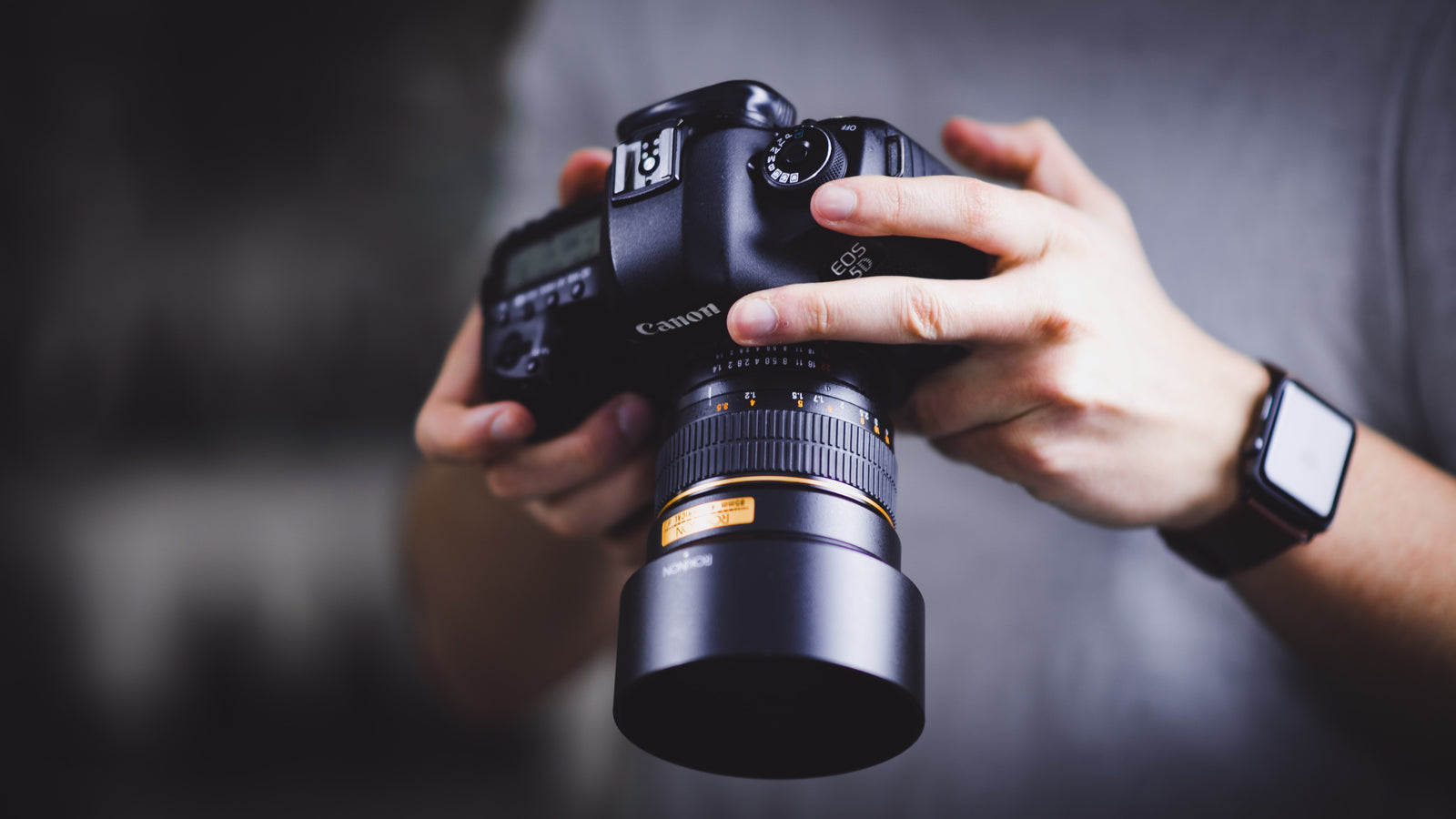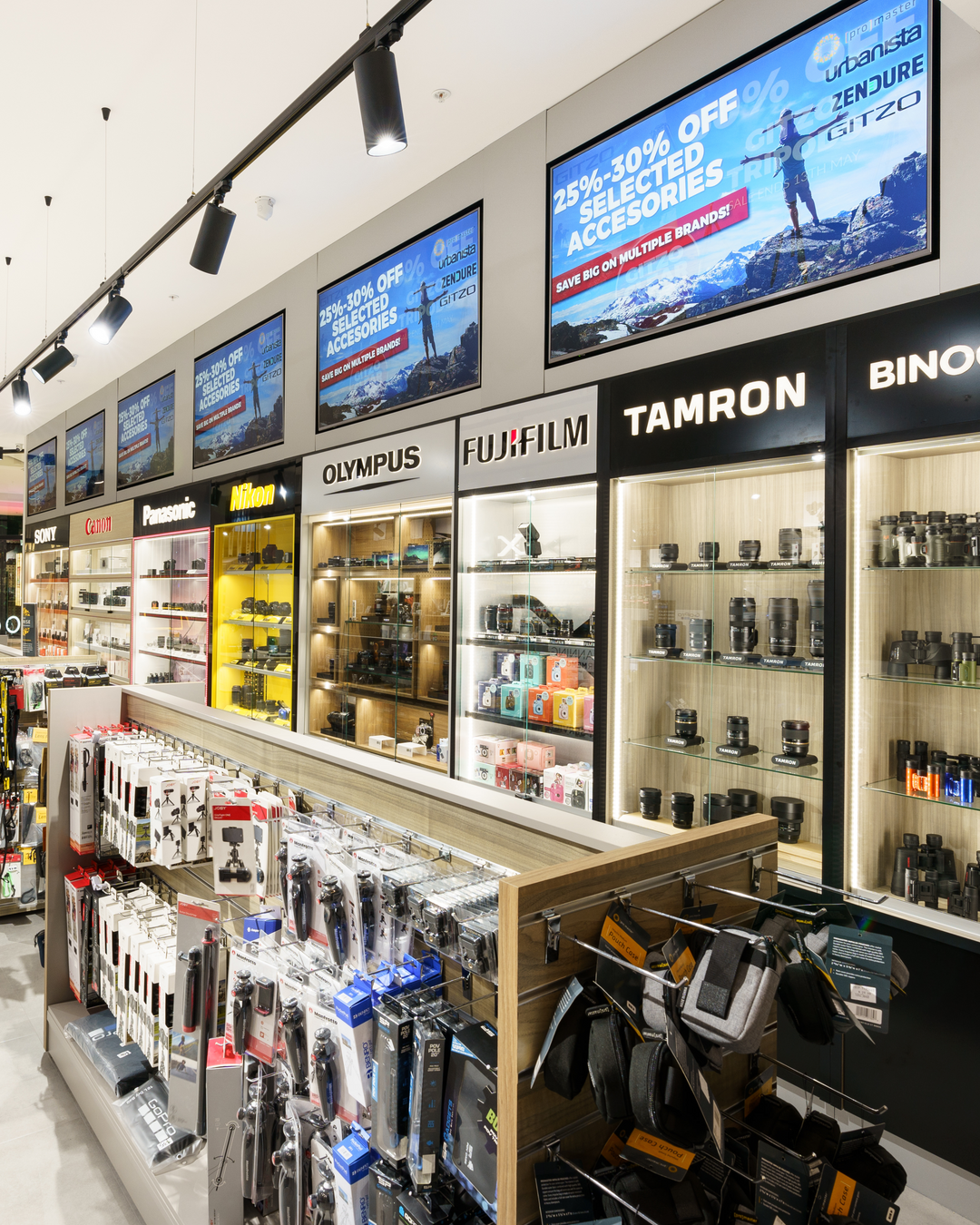Choosing the Perfect Type of Camera: A Buyer's Guide for Beginners

If you're venturing into the world of photography, one of the most important decisions you'll make is choosing the right type of camera. With a plethora of options available, it can be overwhelming for beginners. That's where this buyer's guide comes in to help you navigate the maze of choices and select the perfect camera for your needs. Whether you're an aspiring photographer or just want to capture memorable moments, CameraClix AU has you covered.
Understanding Camera Types
Before you dive into the specifics of each camera, it's essential to understand the basic types available:
- DSLR (Digital Single-Lens Reflex)
These DSLR cameras are now coming towards the end of the manufacturing life as they are being phased out for the newer more advanced mirrorless cameras range, but don’t take this as a sign of lack of quality or functionality, just a sign of change.
Pros: The pros of DSLR cameras include that they have excellent image quality, interchangeable lenses, and full manual control.
Cons: The cons to DSLR cameras include they are bulkier and heavier with a learning curve for beginners. DSLRs are also in the process of being phased out by a lot of the big camera companies in favour of advanced mirrorless technology.
DSLRs were favoured by many professional photographers for their versatility and image quality. They allow you to change lenses for various shooting situations, offering complete control over settings like aperture, shutter speed, and ISO.

- Mirrorless (Replacement technology for the DSLR)
Pros: There are many pros of mirrorless cameras. They have exceptional Image quality, extremely advanced lowlight capabilities, compact and lightweight, interchangeable lenses. Some of the newer models even include AI technology to assist with focusing.
Cons: The use of digital viewfinders, high quality screens and more focus on digital smart features mean they drain batteries faster than the older DSLR ranges.
Mirrorless cameras combine the best of both worlds: quality and portability. They provide superb image quality, interchangeable lenses, and the advantage of being smaller than DSLRs. You’ll also get a lot of control over lowlight conditions.

- Compact/ Point and Shoot Cameras
Pros: The pros of compact and point and shoot cameras are that they are extremely portable, easy to use, budget friendly.
Cons: The cons of compact and point and shoot cameras are that they have limited manual control, less powerful zoom.
Compact cameras, often known as point-and-shoots, are perfect for casual photographers. They're small, user-friendly, and come with automatic settings, making them a great choice for those just getting started.
- Bridging Point and Shoot cameras
Pros: Amazing Zoom that can't be matched for size and price, easy to use, budget-friendly (in comparison to large lenses).
Cons: Limited manual control, lower image quality can vary depending on the level of bridging camera..
Bridging cameras, often known as extreme zoom point-and-shoots, are perfect for casual sports or bird photographers. They're smaller than a mirrorless with a large lens, user-friendly, and come with automatic settings, making them a great choice for those just getting started in any field that needs a large zoom.
Factors to Consider
Now that you're familiar with the basic camera types, let's delve into the factors to consider when making your decision:
- Budget
Your budget will significantly influence your camera options. Fortunately, there are cameras available for every price range. Decide how much you're willing to invest and stick to it. Keep in mind that you'll need to budget for accessories like lenses, memory cards, and a camera bag.
- Intended Use
Consider what you'll primarily be using your camera for. Is it for travel photography, portraits, wildlife, or general use? Different photography genres may require specific features. For example, wildlife photographers often need cameras with fast autofocus and long telephoto lenses which means that they’re using either a mirrorless or DSLR camera.
- Portability
Think about how often you'll carry your camera. If you want something lightweight and easy to transport, a compact or mirrorless camera might be the way to go.
- Ease of Use
For beginners, a camera with user-friendly controls and automatic modes can be a lifesaver. It allows you to learn at your own pace while still capturing great shots. More advanced users may prefer cameras with manual controls for greater creative control.
- Lenses and Accessories
Consider the availability and affordability of lenses and accessories for your chosen camera. Interchangeable lens systems (DSLRs and mirrorless cameras) offer versatility, but it's essential to check if there's a variety of lenses within your budget.
- Brand and Ecosystem
Some photographers stick with a particular brand because of its ecosystem. Canon, Nikon, Sony, and others have loyal followings and extensive selections of lenses and accessories. Research the brand's offerings and reputation before making a decision.
Top Picks at CameraClix AU
Now that you've got a better understanding of what to look for, here are some top camera picks available at CameraClix AU for beginners:
- Canon G7X III (Compact) - A high-quality compact camera that's perfect for vlogging and travel.
- Sony Alpha a6400 (Mirrorless) - Compact and affordable, this mirrorless camera delivers excellent image quality especially for video.
- Nikon D850 - Professional DSLR with long lasting battery life and excellent image quality.
- Sony Alpha A7IV mirrorless full frame) - High quality and compact, this particular camera offers the best in advanced mirrorless technology with exceptional low light capabilities and high resolution images.
Choosing the perfect camera as a beginner doesn't have to be a daunting task. Start by considering your budget, intended use, and preferences regarding size and ease of use. Then, explore the available options, and don't hesitate to visit CameraClix AU for expert advice and a wide selection of cameras and accessories. With the right camera in hand, you'll be well on your way to capturing stunning images and embarking on your photography journey.
Happy shooting!







